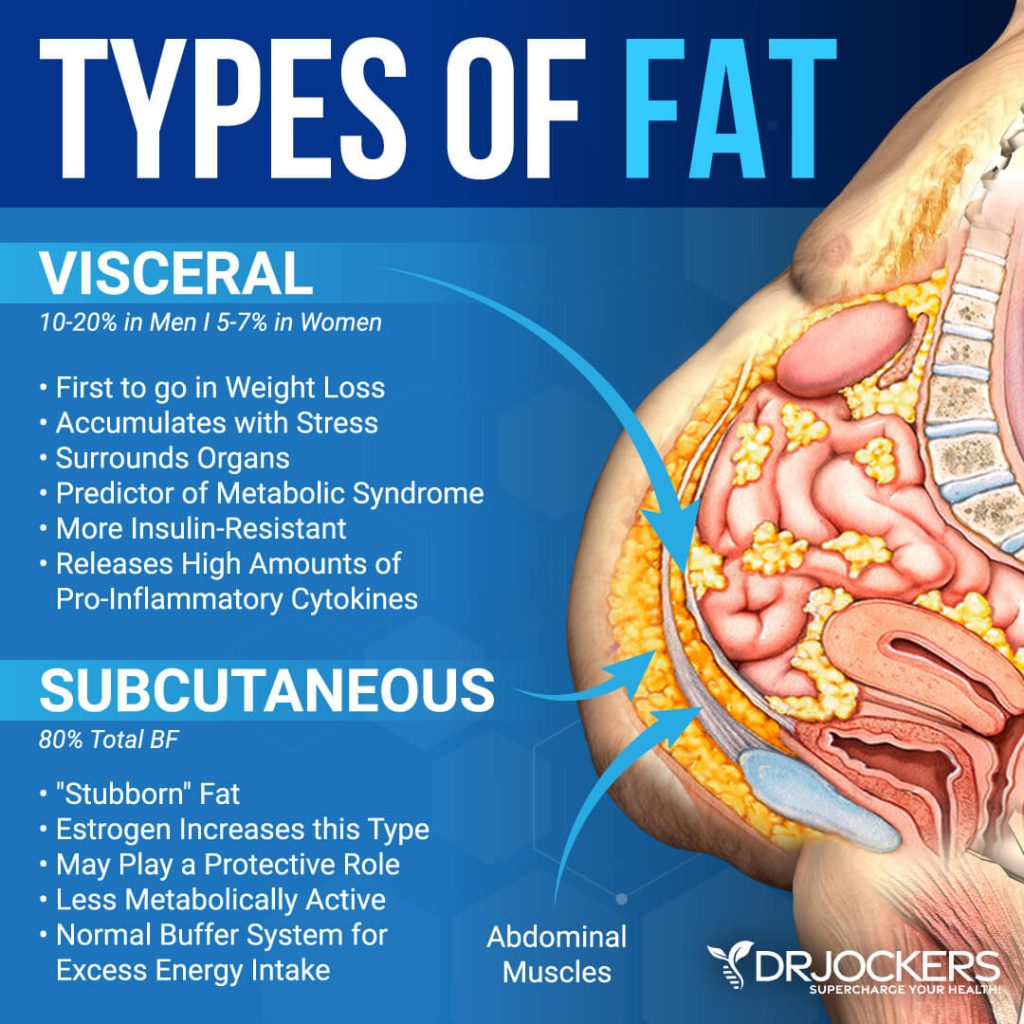When we think about body fat, the first thing that usually comes to mind is the visible layer of fat just under our skin, known as subcutaneous fat. However, another type of fat, known as visceral fat, is much less noticeable but far more dangerous. It’s stored deep within the abdominal cavity, wrapping around important internal organs such as the liver, pancreas, and intestines. In this article, we’ll explore what visceral fat is, why it’s harmful, and how to manage it.
What is Visceral Fat?

Visceral fat is the fat stored within your abdominal cavity, surrounding organs like your liver and intestines. Unlike subcutaneous fat, which you can pinch between your fingers, visceral fat is hidden deep within the body. It’s sometimes referred to as “active fat” because of its biological activity—producing hormones and inflammatory substances that can increase the risk of several serious health conditions.
Why is Visceral Fat Dangerous?
While all fat can be harmful if present in excess, visceral fat is particularly concerning because of its location and how it behaves in the body. Here’s why it poses a risk:
- Increased Risk of Cardiovascular Disease
Visceral fat can increase the risk of heart disease by releasing chemicals that promote inflammation and raise blood pressure. It also affects how the body handles cholesterol, leading to a higher risk of clogged arteries. - Insulin Resistance and Type 2 Diabetes
This type of fat can impair the body’s ability to use insulin properly, resulting in insulin resistance. When the body becomes resistant to insulin, it has difficulty controlling blood sugar levels, which can lead to type 2 diabetes. - Hormonal Imbalance
Visceral fat affects the production of hormones like leptin, which helps regulate hunger, and adiponectin, which plays a role in metabolism. Imbalances in these hormones can lead to weight gain and further health complications. - Increased Risk of Certain Cancers
Research shows a correlation between high levels of visceral fat and certain types of cancer, including breast and colorectal cancers. This is partly due to the inflammatory substances released by visceral fat. - Fatty Liver Disease
Visceral fat is closely linked to non-alcoholic fatty liver disease (NAFLD), a condition where excess fat builds up in the liver, causing inflammation and potential liver damage.
What Causes Visceral Fat?
Several factors contribute to the accumulation of visceral fat:
- Poor Diet: A diet high in sugar, refined carbs, and unhealthy fats is a major contributor to visceral fat buildup.
- Lack of Physical Activity: Sedentary lifestyles lead to an increase in body fat, including visceral fat.
- Genetics: Some people may be genetically predisposed to store fat in the abdominal area.
- Age: As people age, their metabolism slows down, leading to an increase in fat storage.
- Hormonal Changes: Hormonal imbalances, especially during menopause, can lead to an increase in visceral fat, particularly in women.
How to Reduce Visceral Fat
Reducing visceral fat can significantly improve your overall health and reduce the risk of chronic diseases. Here are some ways to manage and reduce it:
- Exercise Regularly
Engaging in physical activity, especially cardiovascular exercises like running, swimming, or cycling, helps burn fat, including visceral fat. Resistance training, such as weight lifting, also aids in fat loss and improves metabolism. - Adopt a Healthy Diet
Focus on whole foods, such as vegetables, fruits, lean proteins, and whole grains. Limiting sugar, refined carbs, and processed foods can help reduce visceral fat. - Reduce Stress
Chronic stress leads to the production of cortisol, a hormone that encourages fat storage, especially in the abdominal area. Practices like meditation, yoga, and deep breathing exercises can help lower stress levels. - Get Enough Sleep
Lack of sleep is linked to weight gain and an increase in visceral fat. Aim for at least 7-9 hours of quality sleep per night. - Limit Alcohol Consumption
Excessive alcohol consumption can lead to fat accumulation, particularly in the abdominal area. Moderating alcohol intake can help prevent and reduce visceral fat.
Conclusion
Visceral fat may be hidden, but its effects on health are significant. By understanding what it is and how to manage it through a healthy lifestyle, you can reduce your risk of developing serious health problems and improve your overall well-being. Remember, it’s not just about losing weight—it’s about targeting the dangerous fat that affects your internal organs and long-term health.
Leave a Reply